10 Best Sustainable Sneaker Brands
Table of Contents
How To Choose The Best Sustainable Sneaker Brand
Sustainability has reached all four corners of the closet. From accessories, and bottoms to tops, it’s only natural that the eco-chic trend would reinvent the common shoe.
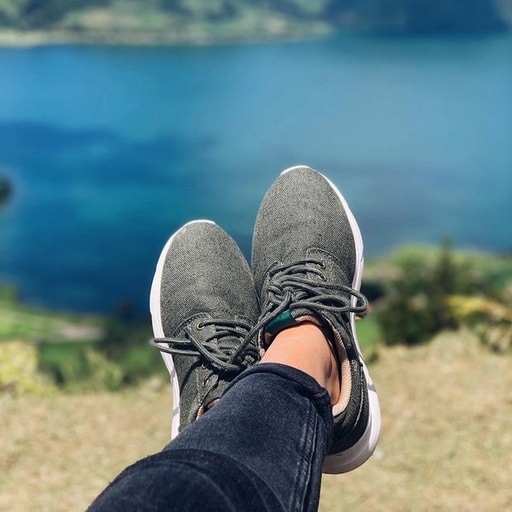
While some big-name companies like Adidas are remodeling their own manufacturing structure to meet the demands of the ethical consumer, niche brands like Thousand Fell are starting from the ground up.
While it’s exciting to see a spike in sustainability, it’s important to keep a healthy sense of buyer’s skepticism. Are these brands truly eco-friendly, or is it another case of greenwashing?
We can answer this question by looking at a few key points from each brand: its materials, manufacturing process, price, and of course—customer feedback.
10 Best Sustainable Sneaker Brands
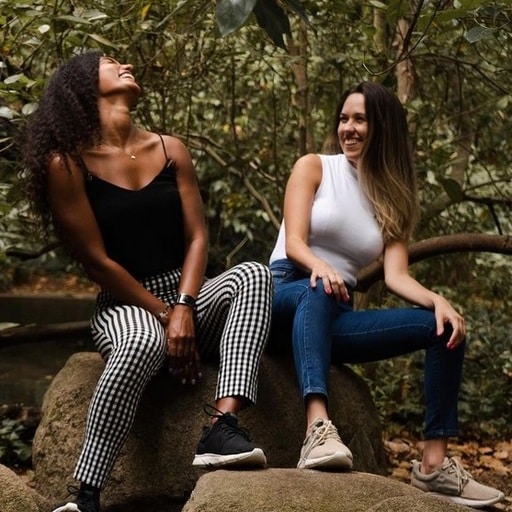
To make things easier for you, I’ll round up the 10 best sustainable sneaker brands currently on the market. I’ll be reviewing the four key points I mentioned above to help you make a more informed decision about which company to support.
Keep in mind that all of these brands definitely have a small carbon footprint, no pun intended.
1. Thousand Fell
If you would roll 500 miles and roll 500 more, I’m sure that Thousand Fell would be durable enough for the road ahead. The Proclaimers references aside, this footwear brand believes in a sustainable future when it comes to sneakers.
It’s an inspiring story of realization and determination to reinvent the way we manufacture shoes, which all began in 2018 in the heart of New York City. More specifically, Thousand Fell is run by co-founders Chloe Songer and Stuart Ahlum.
Designed for both men and women, its organic sneakers are made from ingredients you usually wouldn’t associate with clothing manufacturing. They include aloe vera, quartz, coconut husk, castor beans, and sugar cane.
These ingredients are biodegradable, recyclable, anti-microbial, and abrasion-resistant, which helps extend the longevity of Thousand Fell’s sneakers. Ultimately, these shoes are good for your feet and the environment.
Of course, the brand’s innovation and creativity weren’t met without praise, as Thousand Fell boasts a 21.5k on Instagram. Its eco-friendly sneakers are also featured in a few media outlets, including Men’s Journal, Glossy, and US Weekly.
There’s no doubt in my mind that Thousand Fell deserves to be in the lineup of the ‘best sustainable sneaker brands’ on the market, but how do they fare in terms of price? Fortunately, all of its designs round up to one cost, which is $120 for a single pair.
2. Clae
Oftentimes, the athleisure aesthetic is supercharged with bright colors, bold stripes, and a self-assuming attitude—so it seems to be made for gold medalists only. Clae, on the other hand, believes that activewear doesn’t have to harbor a pretentious point of view.
Founded by Sung Choi in 2001, this footwear brand is known for its classic, modernistic approach to the typical sneaker. If anything, it screams elegance and refinery, which is reflective of the upscale life of its Los Angeles-based clientele.
Workshopped in Ho Chi Minh City in Vietnam, Clae implements dozens of sustainable practices within its manufacturing process. This mainly includes using vegan or recycled materials to help curb waste.
Designed for both men and women, its sneakers have managed to win the brand lots of fans. Clae has over 83.4k followers on Instagram, plus a few mentions from a few magazines like GQ and the Los Angeles Times.
Clae’s collection is definitely something to drool over, but what about the prices? I wrote this ‘best sustainable sneaker brands’ listicle to answer questions like these!
So here are a few of its top-selling designs with average prices:
- The Men’s Ellington Textile shoes: $80
- The Women’s Porter Black Organic Canvas shoes: $90
- The Men’s August Navy White Denim shoes: $100
- The Women’s Edwin Eggnog Mykonos Blue shoes: $190
3. R3 Concept
Considered relatively new to the sustainable sneaker game, R3 Concept was dreamt up by founder Etienne Pre in Montreal, Canada.
It’s a straightforward, in-your-face approach to ethically-made shoes, as the brand name literally translates to reducing, reusing, and recycling (hence the “R3”).
In addition, R3 Concept is proud to be a 100% zero waste company, as it only utilizes sustainable and biodegradable materials within its designs.
If we I to summarize R3 Concept’s core aesthetic, it would be hypebeast blended with techwear. Its designs are modernized, refined, and tasteful.
Currently, it only offers four sneakers in total, which are categorized into two collections: the Ultra Zero Waste section and the R3-V01 set.
Since R3 Concept is quite new to the market, there’s not a lot of buzz for its shoes online. And if you’re reading this 10 best sustainable sneaker brands listicle to find out what it has to offer, I’ll discuss its price point.
Please note: you should know that some of its designs are limited in quantity.
- The Ultra Zero Waste shoes (for men and women): $145
- The R3-V01 Black shoes: $89 (sold out)
- The R3-V01 Blue shoes: $86
4. Allbirds
If you’re a longtime veteran of wearing sustainable sneakers, chances are that you’re already familiar with Allbirds. Founded by Tim Brown and Joey Zwillinger, this footwear company utilizes New Zealand merino wool for its shoe collection.
Allbirds cares about environmental conservation, as it only sources biodegradable materials to help curb waste. This mainly includes ‘ingredients’ like trees, sugar, Trino fibers, TrinoXO yarns.
Since its debut in 2016, Allbirds has integrated several eco-friendly practices within its manufacturing process. Honestly, I recommend taking a gander at the brand’s sustainability report, which provides an in-depth account of its carbon footprint.
Related: Interested in learning more? View our Allbirds Shoes Review
With a passion for reinventing shoe fashion, it should come as no surprise that it’s widely considered to be one of the best sustainable sneaker brands out there.
Now based in San Francisco, California, Allbirds continues to fly high in terms of internet success. It has over 459k followers on Instagram. Its designs are also featured in several online publications, including Forbes, CNN, and CNBC.
It’s worth noting that Allbirds produces more than just sustainable shoes, as customers can also find activewear and facemasks in its catalog.
Of course, the best sustainable sneaker brands don’t come cheap. So I’ll provide a ballpark estimate of footwear costs below.
- The Men’s Wool Runners: $98
- The Men’s Wool Runners Mizzles: $115
- The Women’s Tree Dashers: $125
- The Women’s Wool Dasher Mizzles: $135
5. Vessi
If Jesus can walk on water, so can you. Well, I recommend putting on a pair of Vessi shoes first before you go splashing in puddles. This apparel company puts its best foot forward when it comes to following eco-friendly practices.
Its best known for its collection of water-resistant shoes, which range from the Cityscape Sneaker to the Everyday Slip-On.
Founded by Tony Yu, Andy Wang, and Mikaella Go, Vessi was born in the rain-ridden city of Vancouver, British Columbia. Obviously, it was only natural for its founders to create a shoe that could withstand the BC climate.
But in order to differentiate themselves from the fast fashion crowd, Vessi turned to partnered companies that share the same sustainable values, such as Oeko-Tex and Bluesign. This brand also uses vegan materials to help minimize waste and energy.
Related: Check out our Vessi Footwear Review for a full analysis.
If Vessi is considered one of the best sustainable sneaker brands on the market, this should be evident through press coverage and customer feedback. Well, the company has over 200k followers on Instagram, which is also accompanied by a few select headlines in magazines like PopSugar, Travel + Leisure, and The Globe and Mail.
Designed for men, women, and children, Vessi’s shoe collection varies depending on activity. If you’re keen on getting a pair, I’ll spotlight a few of the brand’s bestsellers to help you get a sense of their prices.
- The Kids Weekend Asphalt Black shoes: $76
- The Men’s Cityscape Pumpkin Spice Orange shoes: $108
- The Women’s Everyday Move Onyx Black shoes: $124
- The Women’s Weekend Oak Brown shoes: $132
6. Veja
Sneakers: we buy ’em, wear ’em, and buy them in bulk if we can’t get enough of ’em. Unfortunately, with demand comes damage—as most shoppers are familiar with the “true cost of fashion” in terms of waste and pollution.
While some apparel brands march forward with their controversial approach to manufacturing, Veja looks to usurp the shoe industry and pave the way to a brighter and cleaner future.
Veja was dreamt up by founders Sébastien Kopp and François- Morillion in 2005. Before storming into the footwear industry, they were already quite familiar with the environmental impact of fashion.
Related: Check out our Veja Sneakers Review to learn more.
In an effort to ‘push the opposing forces,’ they created their own collection of sustainable sneakers. Together, with a mix of eco-friendly materials and fair trade practices, Veja shoes were introduced as an alternative to ethical shoppers.
Coupled with the brand’s eco-friendly measures and stylish designs, Veja shoes are now spotlighted throughout social media. It boasts over 694k followers on Instagram.
You may have read up on this Paris-based brand in magazines like Highsnobiety and Stylecaster. Its designs have also been worn by a few stars, including Meghan Markle.
Veja is undoubtedly one of the best sustainable sneaker brands in the industry, but is it the best in terms of price? Let’s take a look at some of its hottest picks to get an idea.
- The Kid’s Esplar Leather Cobalt Tonic shoes: $67
- The Women’s Esplar Leather White Marsala shoes: $120
- The Men’s Venturi Flannel Snow Grafite Natural shoes: $180
- The Women’s Venturi Ripstop Veja X Emir Shiro shoes: $220
7. Loom Footwear
I don’t know about you, but I have an embarrassing collection of shoes in my wardrobe. If anything, it’s a collection of dead skeletons in a closet since most of them go unworn.
Fortunately (and unfortunately), co-founders Mark McCormick and Erica Cohen are guilty of the same habit. But unlike most sneakerheads, they decided to respond by making a footwear company free of waste and pollution.
Established in 2018, Loom Footwear made a home for itself in Los Angeles, California. It’s best known for its collection of waterproof shoes, which are only offered in two designs for men and women.
Related: View the full Loom Footwear Review for a full analysis.
Loom sneakers are definitely meant for “rough-roading,” as they’re constructed to be breathable, comfortable, anti-microbial, and slip-resistant to help prevent accidents.
While Loom Footwear is considered one of the best sustainable sneaker brands on the market, it falls a bit short when it comes to internet hype. It’s been mentioned in a few select blogs, such as The Confused Millennial and Mountain IQ.
Since this shoe company only offers two designs for customers to choose from, its prices are relatively the same. Currently, Loom’s waterproof sneakers are on sale for $99. You should know that their original price tag was a whopping $250.
8. 8000 Kicks
Recreational fun can mean a sweet, sweet joint for some—or a fun game supported by a fresh pair of sneaks. Fortunately, customers can get the best of both worlds by opting for 8000 Kicks.
This footwear company specializes in hemp-based shoes, which are known to be eco-friendly, durable, and incredibly waterproof. And to answer your question, no, you can’t substitute your smoke for these sneakers.
Funnily enough, the founder of 8000s Kicks was high when he thought of creating cannabis-based sneakers. After sobering up, Bernardo Duque Carriera came to the realization that it wasn’t a bad idea.
Related: View our full 8000Kicks review to learn more.
This led to years of product development, which included partnering with experienced hemp millers, shoe manufacturers, and ultimately, his grandmother Otilia for advice regarding textiles.
8000s Kicks’ footwear is now manufactured sustainably and ethically in factories located in China and Portugal.
Since its debut in 2017, this Portugal-based company has managed to gain some success for its designs. For instance, 8000s Kicks has been featured in a few talk shows, such as Casa Feliz and Sic Official. It also boasts over 31.3k followers on Instagram.
8000 Kicks sure looks promising in terms of style and sustainability, but can the same be said for its prices? Currently, the brand only offers two designs for its sustainable sneakers, which are available in men’s and women’s sizes. They retail for $165.
9. Cariuma
If we’re going to talk about the best sustainable sneakers on the market, we have to check out Cariuma. This online brand is both a people and planet pleaser, as it manufactures footwear that’s both comfortable and eco-friendly to wear.
Founded by owners David Python and Fernando Porto in 2018, each sneaker is consciously made using biodegradable materials like bamboo, rubber, organic cotton, and sugar cane.
From the Oca High tops to the IBI Slip-Ons, every Cariuma shoe is certified by several green-led organizations. This mainly includes Oeko-Tex, OCIA International, and the Leather Working Group.
Now based in Rio De Janeiro, this footwear company continues to push the boundaries of what it means to be a sustainable apparel brand.
Related: If you’d like to learn more view our full Cariuma Shoes Review.
Of course, it’s only natural for Cariuma to have a significant cult following online. Coupled with a 180k audience on Instagram, its designs are heavily featured in several media outlets, such as Stylecaster, Vogue, and InStyle magazine.
So, how much money are we talking about here? To give readers a better sense of Cariuma’s prices, I’ll take a look at some of its bestselling shoes down below.
- The Men’s Oca Low shoes: $79
- The Men’s IBI Slip-Ons: $98
- The Women’s Oca High tops: $129
- The Women’s Catiba Pro shoes: $139
10. Nothing New
Let’s be real. Some dishonest brands use “sustainability” as a buzzword to stroke their ego. That’s not the case for, Nothing New, a brand that aims to reinvent the “green chic” movement.
It carries a wide selection of consciously-made shoes, which are constructed out of recycled materials and post-consumer plastics. After all, isn’t it expected for a brand in 2021 to make eco-friendly and ethically products?
Founded by Nolan Walsh in New York City, Nothing New produces shoes that come with a classic fit and a timeless silhouette. It’s not just style over substance, however, as each sneaker is engineered to be comfortable, impact-resistant, and anti-microbial to reduce odor.
Fortunately, this footwear brand is one of the few carbon-neutral shoe companies on the market.
Over the years, Nothing New has managed to capture the public’s attention as a result of its unique designs. The brand has over 68.7k followers on Instagram, which is also coupled with a few mentions in reputable magazines like Esquire, Business Insider, and The Manual.
With a name as unassuming as Nothing New, should we expect, well, nothing new regarding prices? To answer this question, I’ll show you the prices of four of the company’s bestselling designs below.
- The Men’s Low Top shoes: $95
- The Men’s High Top shoes: $108
- The Women’s Nova shoes in rose gold: $148
- The Women’s Deluxe White Outline shoes: $180
Best Sustainable Sneaker Brands: Things To Consider
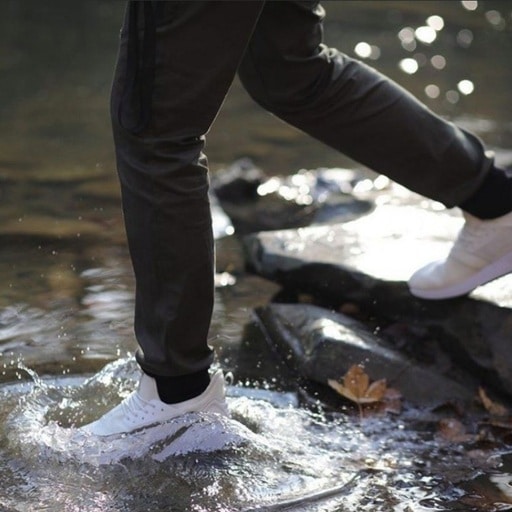
Let me make one thing clear: green doesn’t always equate to good.
Think of it this way, thrifted clothing isn’t known to be resilient or versatile—since it’s been through several wears and washes. Nor is it all that great for the environment if we keep hitting the stores time and time again.
The same can be said about shoes. Sure, the ethical stamp may seem dazzling at first glance, but it’s important to consider other points like quality, resistance, and support.
So before you support one of the 10 best sustainable sneaker brands I’ve featured so far, I’ll share a few pointers that readers should take note of.
Environmental Impact
“Sustainability” isn’t just a term. It’s a practice that’s divided into several categories: material, ethical labor, manufacturing processes, and packaging. While I won’t get into detail about all four points, customers should consider one key factor: company transparency.
Generally speaking, if the brand in question claims to be eco-friendly but isn’t specific about what it does, it’s usually a red flag.
Buyers should take note if the company issues a sustainability report or has a separate section on its website sharing its sustainability efforts or resources.
Durability
Of course, sustainability doesn’t mean squat if the item in question disintegrates after one use. Good shoes should last for years.
To measure durability, customers should look at the materials used in the shoes’ construction. If anything, it’s always a great idea to read buyer reviews before settling on a design.
Versatility
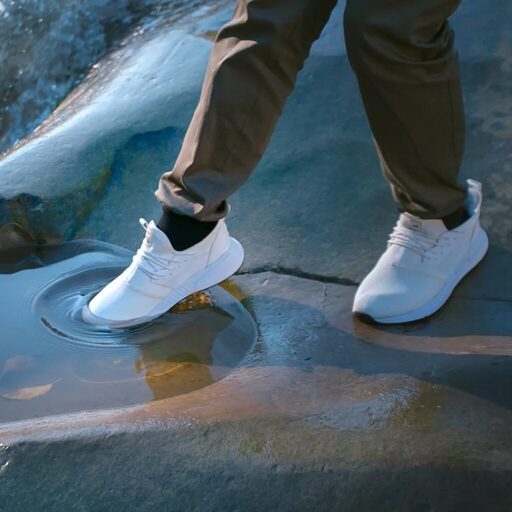
There’s a good reason why a majority of sustainable shoes are sneakers. Trainers can be worn on several different occasions—ranging from high-performance activities to a casual walk in the park. This way, customers can get ample use out of their kicks.
Style
I know, it’s a shallow way to judge sneakers. But realistically speaking, will you ever wear a pair of shoes if they’re ugly? Sustainability relies heavily on style, as it will usually guarantee long-time use.
In addition, customers should look for a pair that’s both classic and timeless in design. Crazy patterns and silhouettes will usually go out of date. This lends itself to an ultimately wasteful purchase on your end.
Support
While many hold fast to the mantra “beauty is pain,” most of us keel over and opt for the more comfortable option instead. As a result, that stunning pair of shoes are subjected to a life in the closet.
To get full use of your sneakers, customers should prioritize footwear support. This includes assets like orthopedic insoles, heel padding, impact-resistant platforms, and more.
Traction
Traction is heavily dependent on your surroundings. Generally speaking, you don’t need to worry about it if you’re typically within an office setting.
Alternatively, those who live for the hiking life need to consider grip when it comes to purchasing footwear. I suggest looking at product pictures and item descriptions for any integrated grooves and patterns made on the outsole.
Price
Considered the dealbreaker when it comes to online shopping, it’s important to determine your budget concerning footwear. In most cases, sustainable shoes cost as little as $67 to as much as $250.
What Are The Best Materials For Sustainable Sneakers?
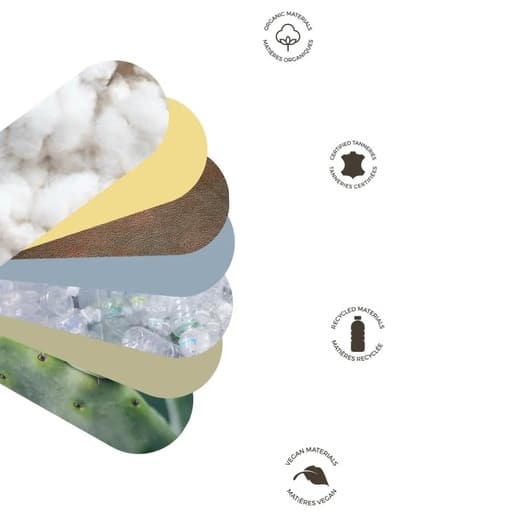
From coconut husks to aloe vera, you’d think that ingredients like these would make skincare rather than sustainable sneakers.
However, hundreds of eco-conscious brands are searching for creative ways to minimize their carbon footprint, which usually includes using post-consumer materials to make their shoes.
You won’t find any non-renewable resources here, as honest companies look towards hemp or organic cotton as eco-friendly alternatives. To keep things short, up next, I’ll briefly look at six of the most common materials used in sustainably-made sneakers.
Hemp
Hemp is considered one of the most popular sustainable fabrics in the market, and for good reason. Not only is it a renewable resource, but the material itself is said to harbor anti-microbial properties and UV light protection.
It’s also very durable under stress and requires no excess chemicals, water, or energy to produce. Aside from shoes, hemp is also present in clothing, bags, and rope.
Recycled Rubber
Natural rubber is known to be eco-friendly. Compared to plastic, it can degrade over time. It’s also made out of a white, milky liquid that can be found in Para Rubber trees, which can be replanted over and over again.
That said, rubber is slow to turn into compost, which is why some brands choose to reuse it for mulch and fabric. Its environmental effects are quickly summarized into a matter of “reduce, reuse, recycle.”
In terms of performance, rubber is highly known to be flexible and durable for high-impact situations.
Recycled Plastics
In an effort to curb waste, most sustainably led brands use recycled plastics in part of their materials.
While some companies turn to post-consumer nylons and polyesters, others source single-use water bottles, old fishing nets, and other wasteful products within their manufacturing processes.
In terms of environmental impact, it’s said to use up less water compared to regular cotton.
Recycled Mesh
Recycled mesh is relatively new in terms of sustainable fabrics. In most cases, brands will usually use their own patented blends or source from another reputable company such as Oeko-Tex and Repreve.
Recycled mesh’s carbon footprint is relatively the same as recycled plastics, but it’s known to use up fewer resources.
When integrated into clothing or shoes, mesh is known to be durable, flexible, and highly breathable due to its perforated design.
Organic Cotton
If you’re familiar with sustainable fabrics, there’s a chance that you already know the benefits of organic cotton.
This type of material has a small environmental impact, since it uses less chemicals, isn’t prone to much soil contamination, and issues a minimal amount of water and air pollution. When in use, organic cotton is said to be very comfortable and durable.
Vegan Leather
If you love leather jackets, perhaps it’s best to go vegan in an effort to minimize pollution. Faux or synthetic leather is not made out of an animal’s hide.
Instead, it’s usually sourced from plants or recycled plastics. During production, this type of material is known to use fewer chemicals and water.
How Long Do Sustainable Sneakers Last?
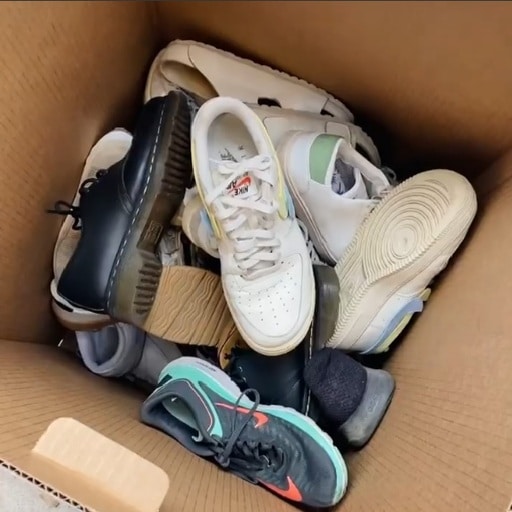
Positively speaking, sustainable sneakers should last you a lifetime. After all, sustainable sneakers are usually durable in an effort to curb waste.
There’s no expiration date attributed to the common shoe, but generally speaking—a well-made pair of kicks may last a decade or two.
Ultimately, this all boils down to how you use the shoes and their overall construction. High-performance activities will usually entail wear and tear over time.
In addition, if the sneakers in question are made out of water-resistant fabrics or protective materials, chances are they can survive several uses.
In some cases, brands offer a lifetime guarantee for their shoes. If anything, I suggest checking in with your chosen shoe company for any specifics regarding longevity.
How To Care For Sustainable Sneakers
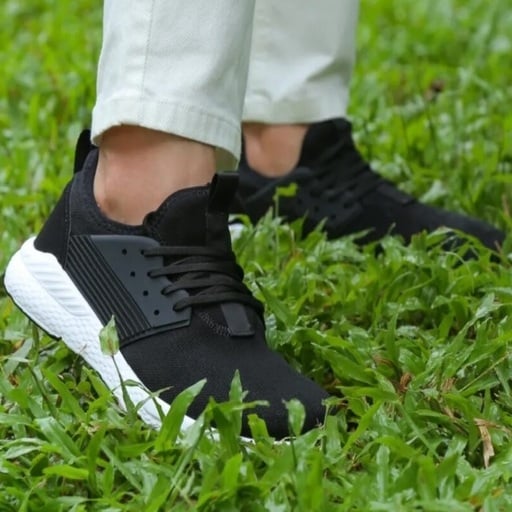
Of course, the life of a shoe depends on how well you care for it. Some brands construct their sneakers to be machine-friendly, meaning that you can toss them into the laundry machine without fear of wear and tear.
But for those unsuited to the tumble-and-toss nature of the laundromat, there are other ways to clean up those sneaks.
Obviously, the best way to take care of your shoes is to avoid getting them dirty in the first place. In addition, it’s best to give them a break once in a while to help air them out.
Other key tips include crumpled-up newspaper beds to help keep the sneaker’s shape intact and using a gentle cleanser to rid surfaces of stains and debris.
If the shoe in question has gone through severe damage, it’s probably best to leave it to the professionals. This usually entails major rips or holes that require proper tools and sewing kits.
With that out of the way, here’s to hoping that you’ll walk away with a more informed decision in regards to buying sneakers. If anything, you’ve got a heads up on the best sustainable sneaker brands that money can buy!
How We Choose The Best Sustainable Sneaker Brands
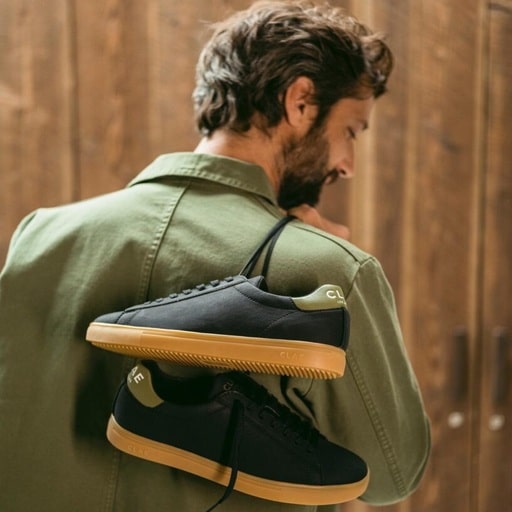
Before choosing any brand, we scour the web and all the biggest e-tailers to ensure we know all the available options on the market.
We look at customer reviews, star ratings, brand ethos, processes, materials, accessibility, and so much more. We weigh the pros and cons, so you don’t have to—because helping you make informed shopping decisions is our mission.
Check out some of our other curated lists:


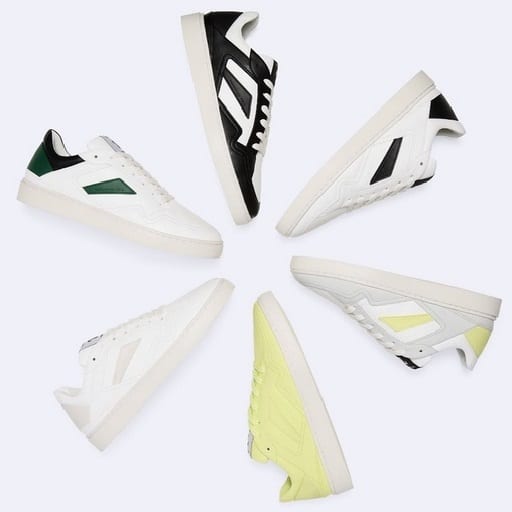
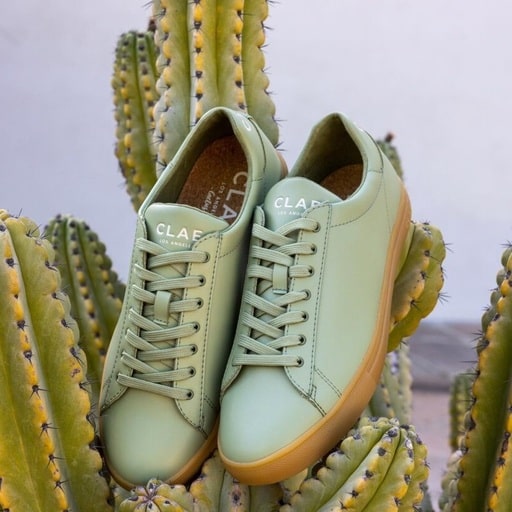
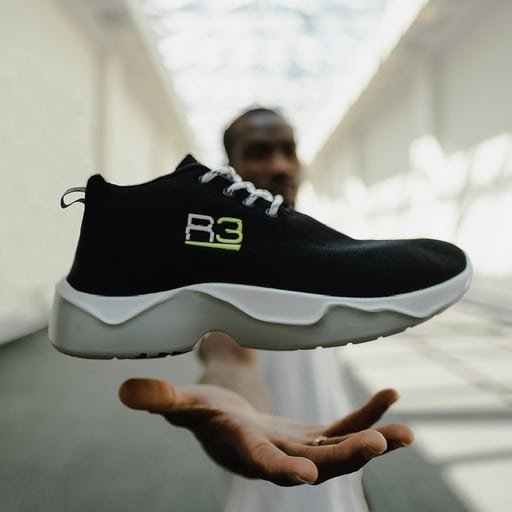
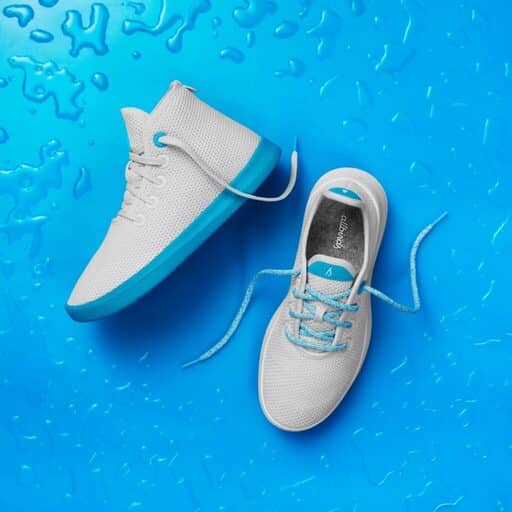
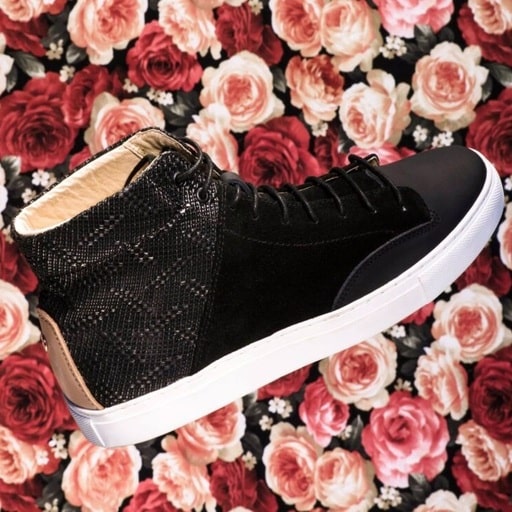
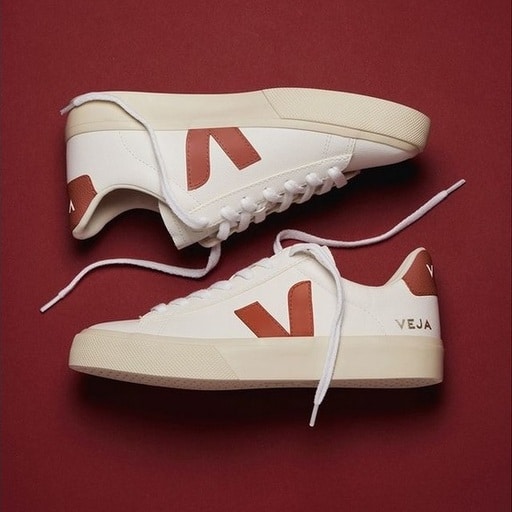
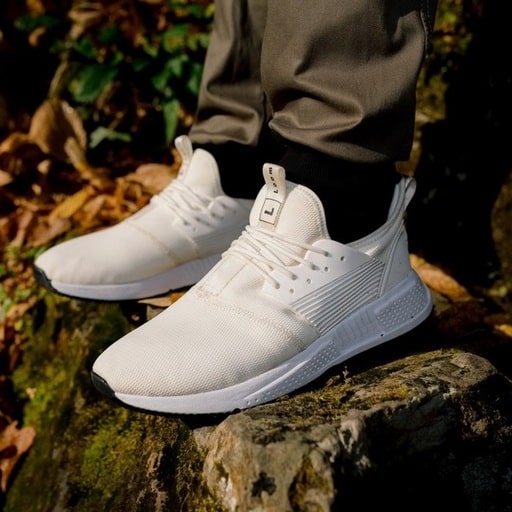
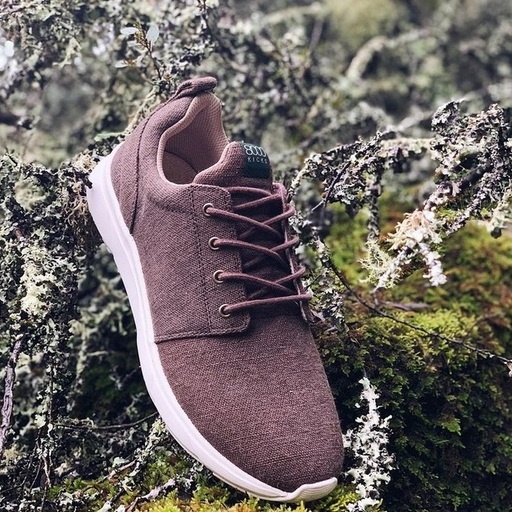
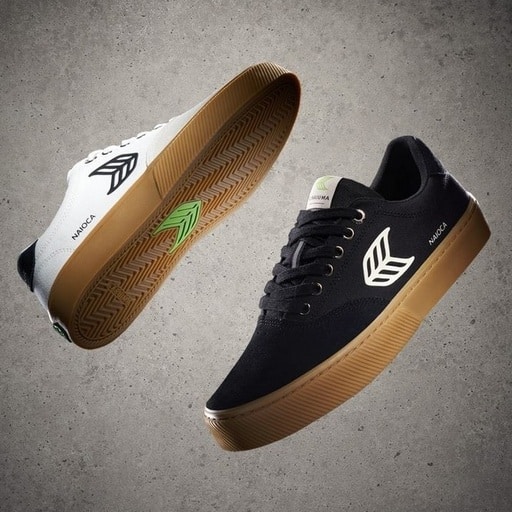
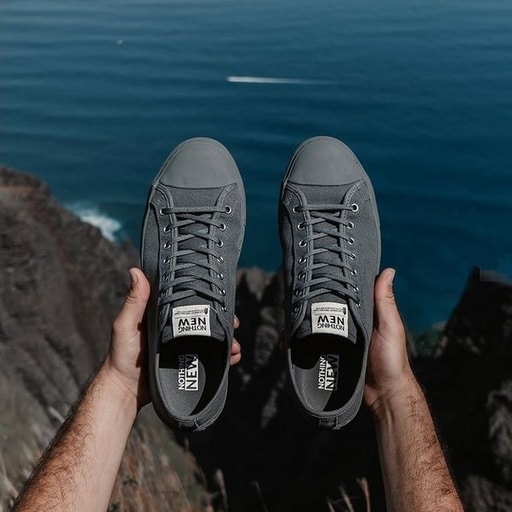
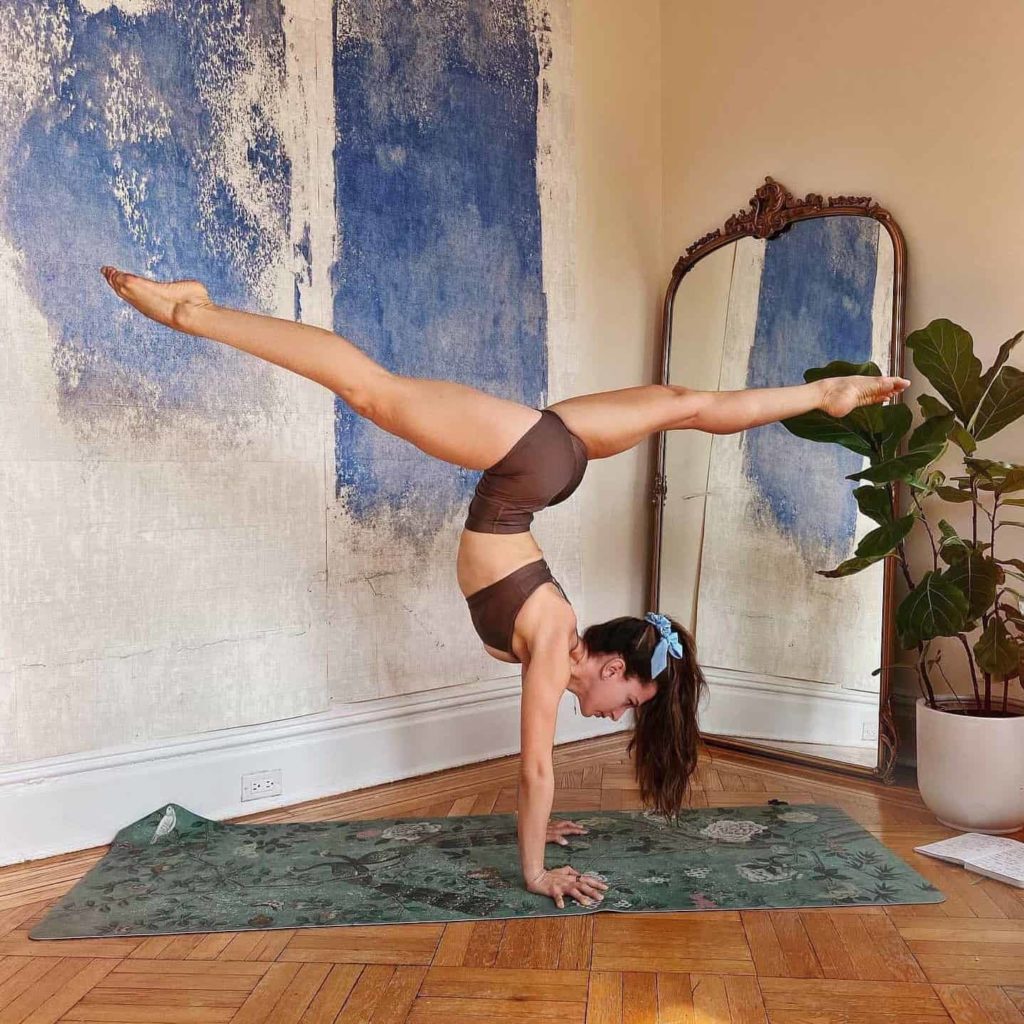
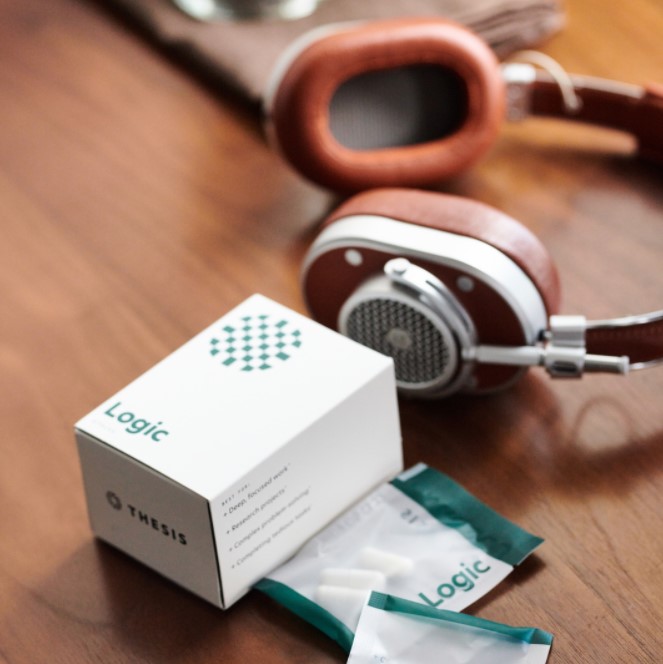
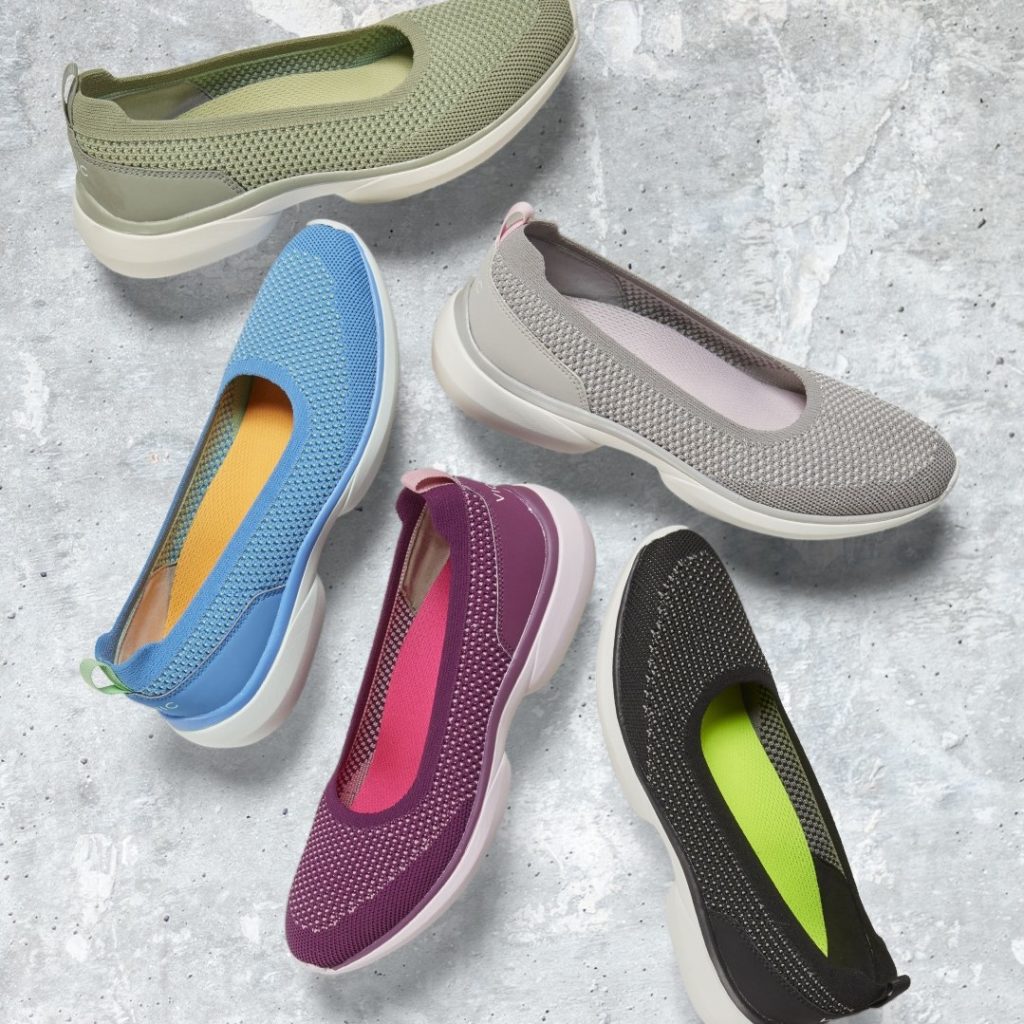
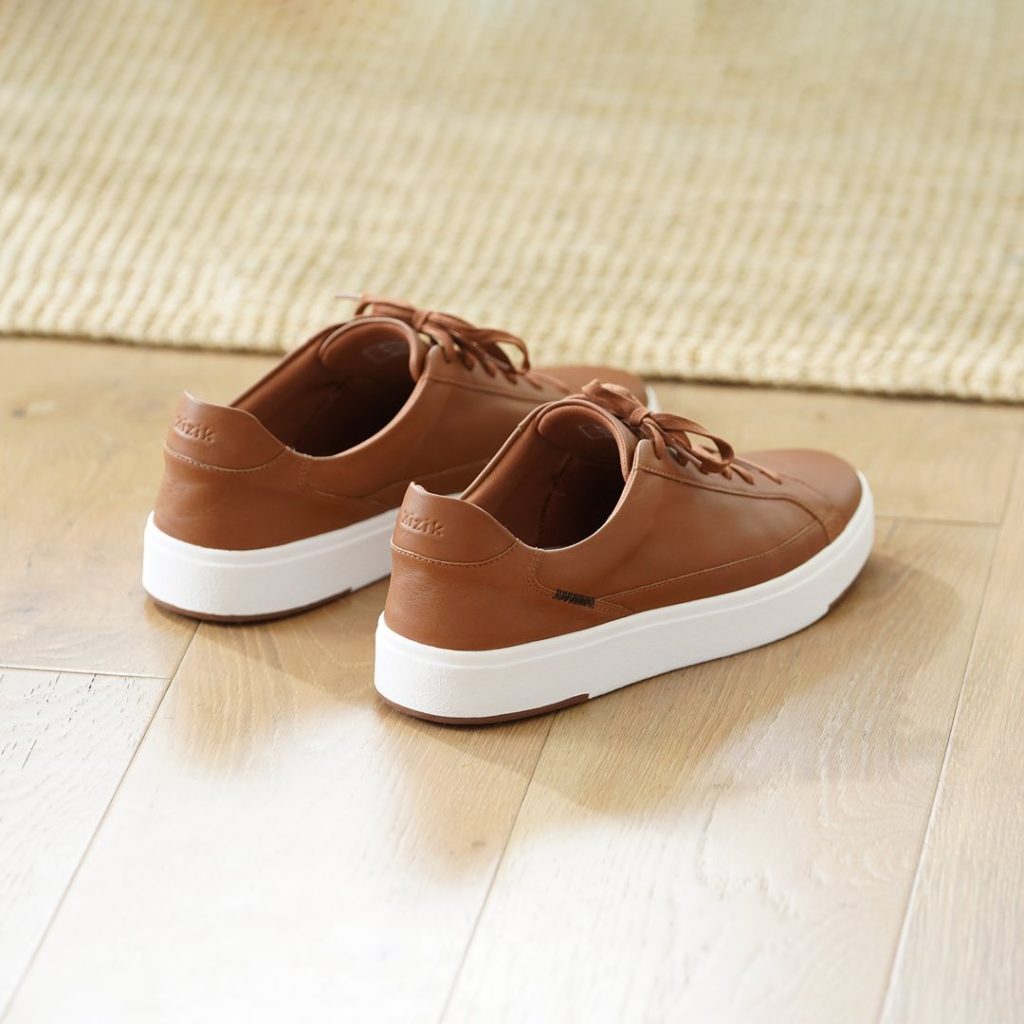
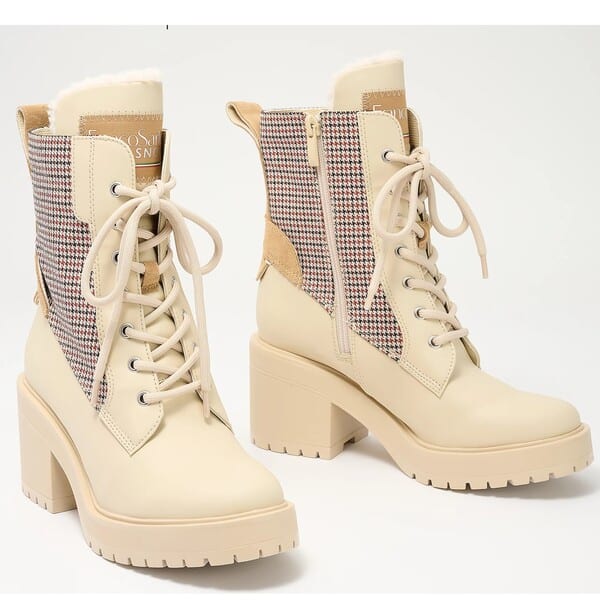
Ask the community or leave a comment
WRITE A REVIEWCustomer Reviews
Leave a review